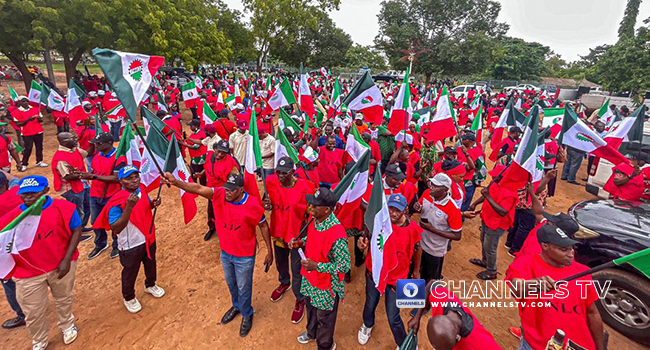The Nigeria Labour Congress (NLC) says the Supreme Court verdict granting financial autonomy to local government areas is a restoration of hope for the country’s democracy.
“It’s an epochal pronouncement on Thursday, July 11, 2024, directing that financial allocations be made directly to Local Governments as well as divesting state governments of the power to remove local government executives is both courageous and salubrious,” the NLC president Joe Ajaero said in a statement on Thursday.
“The Supreme Court through this landmark judgment has not only restored our democracy but possibly hope in democracy.”
In its lead judgement read by Justice Emmanuel Agim, the apex court mandated the Federal Government to begin immediate and direct payment of local government funds to the latter’s exclusive accounts.
The Supreme Court scolded the decades-long refusal of the state government on financial autonomy for local governments.
‘Courageous And Salubrious’
According to the NLC, the verdict is “both courageous and salubrious” and recalled the “tortuous” journey to the local governments’ freedom.
“For years we had watched with dismay and discontent the remorseless and mindless erosion of the powers of the local governments and had embarked on a series of national protests as workers,” Ajaero said.
He also commended the 9th National Assembly, President Bola Tinubu, and the administration of ex-President Muhammadu Buhari for their efforts leading to the verdict.
“We also note the effort made by the Buhari Administration to prise off the strangle-hold of governors on local governments. We must also mention the commendable role on this matter by the 9th Assembly,” the NLC chief said.
“This statement will not be complete without paying tribute to the Tinubu government for its presence of mind to institute this action at the Supreme Court. We specifically commend the President and the Attorney General of the Federation.”
Ajaero, however, wants the Supreme Court ruling implemented and questioned the conduct of local government elections by state electoral commissions.
“Should SIECS be allowed to conduct ‘elections’ or should NEC take over (even as they are over-burdened and are not exactly the best example)? Should there be a regulatory agency or commission with oversight over SIECs? We will find the devil in the details through a stakeholder conversation,” Ajaero said.




